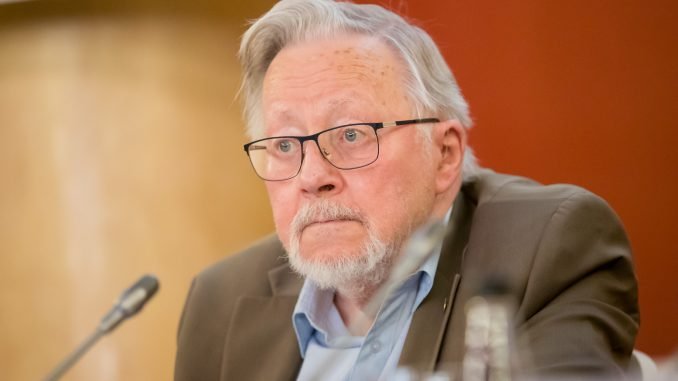
“We achieved a victory for all. Because it was not that one side won and the other lost. Both sides won hope,” Landsbergis said on Friday at a ceremony held in the Seimas to mark 25 years since the last Soviet soldier left Lithuanian soil.
“It is an achievement, a victory for both countries that we managed (to agree) despite all that fighting, intrigues, attempts to force, intimidate and blackmail (by saying) that we would not sign and you would leave with nothing,” he added.
The successful outcome of the talks, when a timetable for the withdrawal of the occupation army was finally approved, was due both to the Lithuanian negotiating team’s firm stance and to other circumstances, Landsbergis said.
“Fortunately for us, there was a window of opportunity when Russia was led by a decent leader,” he said, referring to the then-Russian President Boris Yeltsin.
After declaring independence from the Soviet Union on March 11, 1990, Lithuania began to seek the withdrawal of the occupation army, which had entered the country back in 1940.
The first withdrawal talks were held on January 31, 1992. Landsbergis and Yeltsin signed on September 8 of that year a final agreement, setting a timetable for the withdrawal of the Russian army from Lithuania.
Around five divisions were stationed in the Lithuanian territory during the Soviet times, including around 34,500 soldiers, 1,000 tanks, around 180 aircraft and 1,901 IFVs.
The last Soviet army echelon left Lithuania at 11.46 p.m. on Aug. 31, 1993.
“We had the political determination and will. And most importantly, Russia was different. That Russia understood that it was withdrawing the army from territory that no longer belonged to it, but to a foreign state,” President Dalia Grybauskaitė said at another ceremony marking the 25th anniversary in the capital’s Independence Square.
She underlined the importance of showing Lithuania’s will to defend itself and reinforce its armed forces in the face of the current geopolitical challenges.

Be the first to comment